Due to the usage habits of some areas and the more complete automated swimming pool system, they prefer to use TCCA disinfectant tablets when choosing swimming pool disinfectants. TCCA (trichloroisocyanuric acid) is an efficient and stable swimming pool chlorine disinfectant. Due to the excellent disinfection properties of TCCA, it is widely used in swimming pool disinfection.
This article will give a detailed description of the usage and precautions of this efficient swimming pool disinfectant.
Sterilization properties and common specifications of TCCA tablets
TCCA tablets are a high-concentration strong oxidant. Its effective chlorine content can reach more than 90%.
Slow dissolution can ensure the continuous release of free chlorine, prolong the disinfection time, reduce the amount of disinfectant and labor maintenance costs.
Powerful sterilization can quickly eliminate bacteria, viruses and algae in the water. Effectively inhibit the growth of algae.
Contains cyanuric acid, which is also called swimming pool chlorine stabilizer. It can effectively slow down the loss of effective chlorine under ultraviolet radiation.
Strong stability, can be stored for a long time in a dry and cool environment, and is not easy to decompose.
Tablet form, in use with floaters, feeders, skimmers and other dosing equipment, cheap and accurate control of the amount of dosing.
And it is not easy to have dust, and will not bring dust when using.
There are two common specifications of TCCA tablets: 200g and 20g tablets. That is, the so-called 3-inch and 1-inch tablets. Of course, depending on the size of feeders, you can also ask your pool disinfectant supplier to provide TCCA tablets of other sizes.
In addition, common TCCA tablets also include multifunctional tablets (i.e., tablets with clarification, algaecide and other functions). These tablets often contains blue dots, blue cores, or blue layers, etc.
How to administer TCCA tablets when used in swimming pools?
Take TCCA 200g tablets as an example
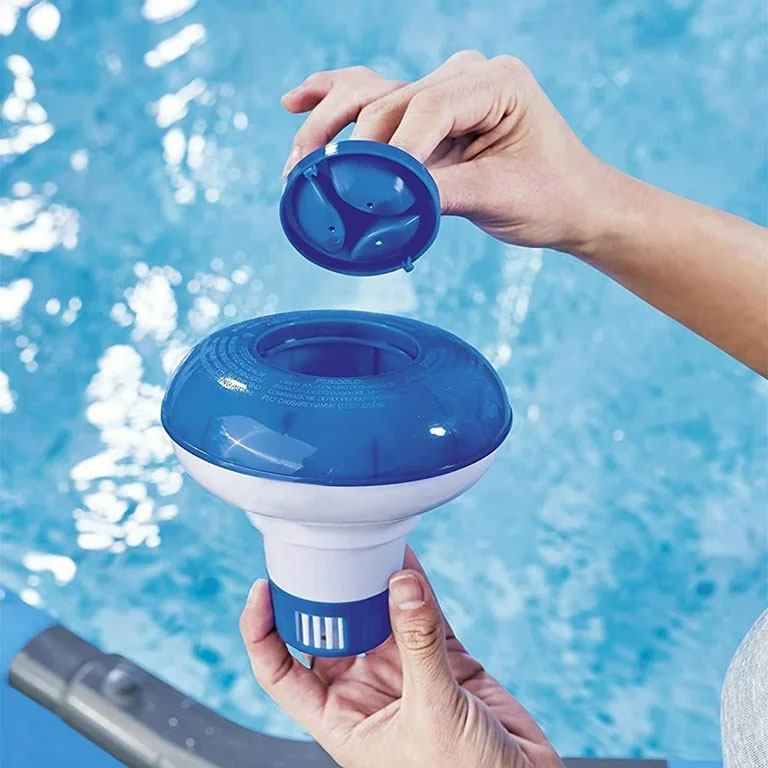
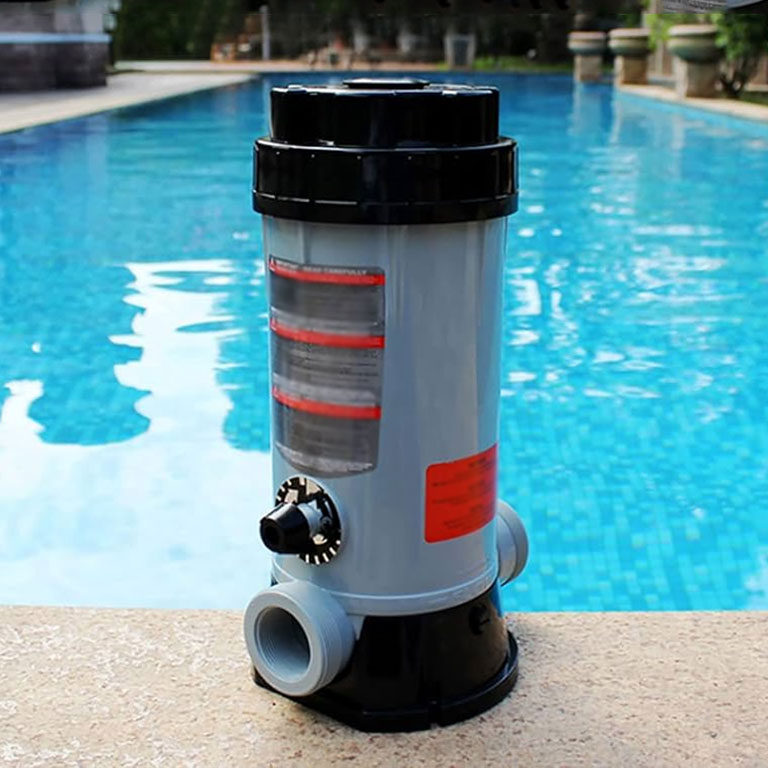
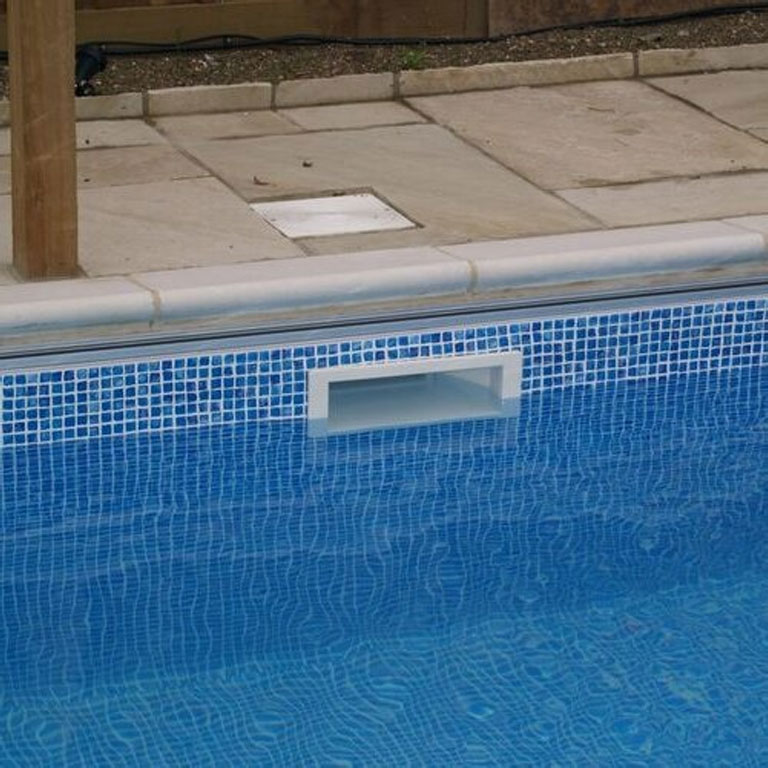
Each of these dosing methods has advantages and disadvantages. How to choose among these dosing methods depends on your swimming pool type and dosing habits.
| Pool types | Recommended dosing method | Description |
| Home pools | Float doser / dosing basket | Low cost, simple operation |
| Commercial pools | Automatic doser | Stable and efficient, automatic control |
| Above ground lined pools | Float / dispenser | Prevent TCCA from directly contacting the swimming pool, corroding and bleaching the swimming pool |
Precautions for using TCCA tablets to disinfect your pool
1. Do not place tablets in the sand filter.
2. If your pool has a vinyl liner
Do not throw tablets directly into the pool or place them on the bottom/ladder of the pool. They are extremely concentrated and will bleach the vinyl liner and damage the plaster/fiberglass.
3. Do not add water to TCCA
Always add TCCA tablets to water (in the dispenser/feeder). Adding water to TCCA powder or crushed tablets may cause a harmful reaction.
4. Personal Protective Equipment (PPE):
Always wear chemical-resistant gloves (nitrile or rubber) and goggles when handling tablets. TCCA is corrosive and may cause severe skin/eye burns and respiratory irritation. Wash hands thoroughly after use.
Calculation of the dosage of TCCA 200g tablets in swimming pools
Dosage formula recommendation:
Every 100 cubic meters (m3) of water costs about 1 TCCA tablet (200g) per day.
Note: The specific dosage depends on the quantity of swimmers, water temperature, weather conditions, and water quality test results.
TCCA 200g Tablets daily maintenance Steps for swimming pools
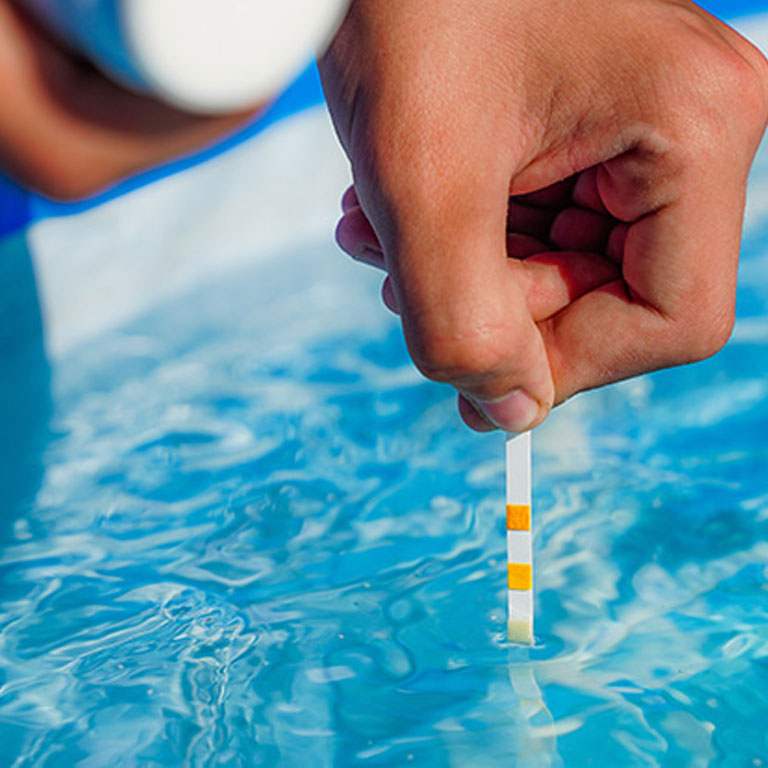
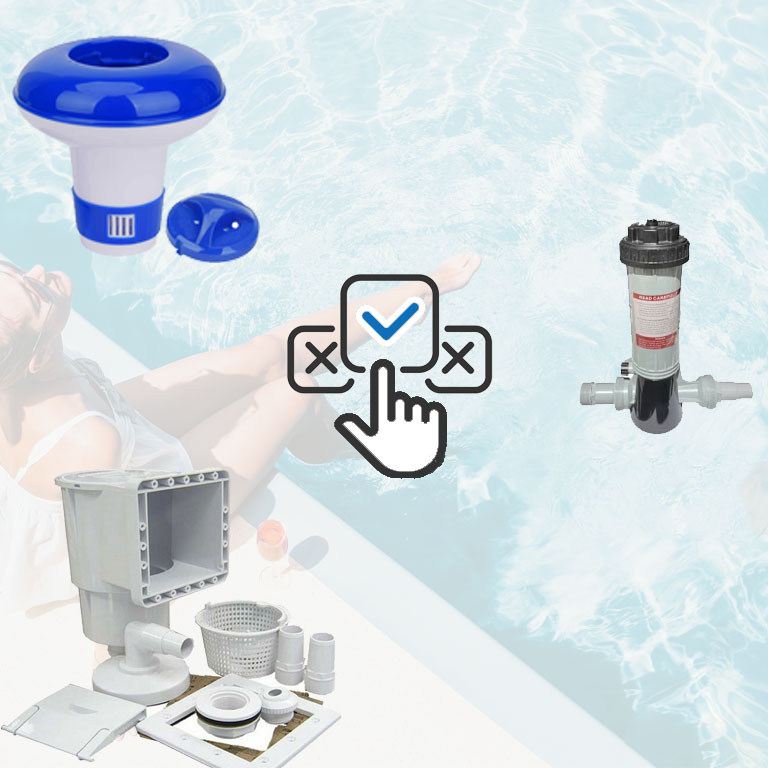
Practical tips:
When the temperature is high in summer and it is used frequently, the frequency or dosage of dosing can be appropriately increased. ( Increase the number of floaters, increase the flow rate of the feeder, increase the number of TCCA tablets in the skimmer )
Check and adjust the chlorine content in time after rain and frequent pool activities.
How to store TCCA disinfectant tablets?
Store in a cool, dry, well-ventilated place away from direct sunlight, heat and humidity.
Keep this product sealed in the original packaging container. Moisture can cause caking and release harmful chlorine gas.
Keep it away from other chemicals (especially acids, ammonia, oxidants and other chlorine sources). Mixing may cause fire, explosion or produce toxic gases (chloramines, chlorine).
Keep this product out of the reach of children and pets. Trichloroacetic acid (TCCA) is toxic if swallowed.
Chemical Compatibility:
NEVER MIX TCCA with other chemicals. Add other chemicals (pH adjusters, algaecides) separately, diluted, and at different times (wait several hours).
Acids + TCCA = Toxic Chlorine Gas: This is extremely dangerous. Handle acids (muriatic acid, dry acid) far away from TCCA.
Note:
If your pool starts to have a strong chlorine smell, stings your eyes, the water is turbid, or there is a large amount of algae. Please test your combined chlorine and total chlorine. The above situation means that adding TCCA alone is no longer enough for the current situation. You need to use a pool shock agent to shock the pool. TCCA cannot solve the problem when shocking the pool. You need to use SDIC or calcium hypochlorite, a chlorine disinfectant that can dissolve quickly.
If you are looking for a reliable supplier of pool disinfection products, or need customized packaging and technical guidance, please contact us. We will provide you with high-quality TCCA disinfection tablets and full-service support.
Post time: Jul-16-2025



